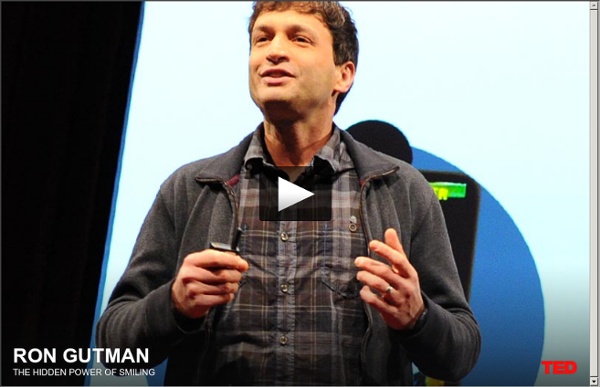



http://www.ted.com/talks/ron_gutman_the_hidden_power_of_smiling.html
Positive Psychology Exercise - Emoclear Self-Helpapedia Emoclear Positve Psychology Exercise I: Doing Pleasurable, Important, and Meaningful Activities Every day for two weeks do the following: 1. Don't Let It Kill You: How To Turn Stress Into Your Friend As a professional, when it comes to helping people deal with the type of straining pressure that can result from life’s hardest times, Kelly McGonigal has experienced a change of heart over the past few years. “My goal as a health psychologist has changed. I no longer want to get rid of your stress, I want to make you better at stress.” Mindfulness (psychology) Mindfulness as a psychological concept is the focusing of attention and awareness, based on the concept of mindfulness in Buddhist meditation.[1] It has been popularised in the West by Jon Kabat-Zinn.[2] Despite its roots in Buddhism, mindfulness is often taught independently of religion.[3][4] Clinical psychology and psychiatry since the 1970s have developed a number of therapeutic applications based on mindfulness for helping people suffering from a variety of psychological conditions.[5] Several definitions of mindfulness have been used in modern psychology. According to various prominent psychological definitions, Mindfulness refers to a psychological quality that involves bringing one’s complete attention to the present experience on a moment-to-moment basis,[6] or involves
Cancer warning labels - :) By Elizabeth Landau CNN.com Health Writer/Producer For several months I have enjoyed recording digital music files through my keyboard, thanks to a simple device that connects it to my laptop. But it wasn’t until recently that I discovered that the following label came with it: WARNING: This product contains chemicals, including lead, known to the State of California to cause cancer, and birth defects or other reproductive harm. Wash hands after handling. I freaked out.
The Last Lecture: A Positive Psychology Case Study My colleague Ben Dean and I recently conducted an Internet survey of 1464 adults interested in positive psychology that asked what they would most like to know about this new field. A large number wanted compelling case examples of actual people who lived life well, who embodied the strengths of character that we have been studying with quantitative methods. The world's greatest teachers, from Socrates and Jesus to the present, have always used parables to instruct and inspire others, and in the disciplines of business and law, the detailed examination of particular cases is the preferred method of teaching. Psychologists have also relied on cases, but these have been psychiatric histories that centered on people's problems. Here is another exception, a marvelous example of what it means to live well: Carnegie Mellon Computer Science Professor Randy Pausch, whose "last lecture" is all over the Internet (e.g.. www.randypausch.com ).
UV Hourly Index - Columbia MO Select interests to add to your dock Health Cold & FluAllergiesRespiratoryArthritisMigraineSinus TravelAstronomyEvents A.M. Feature Story: Writing to Heal: Research shows writing about emotional experiences can have tangible health benefits For nearly 20 years, Dr. James W. Pennebaker has been giving people an assignment: write down your deepest feelings about an emotional upheaval in your life for 15 or 20 minutes a day for four consecutive days. Many of those who followed his simple instructions have found their immune systems strengthened. Others have seen their grades improved. Sometimes entire lives have changed.
Severe calorie restrictions probably don’t prolong life If you wanted to prolong the life of a worm or a fly, there's a simple method of doing so: severely restrict its caloric intake. When fed a very low-cal diet, these lab animals saw their lifespans extended, and showed few of the signs of aging. This encouraged people to see if the same approach would work on animals that are more closely related to humans, and the first results looked promising, in that caloric restrictions appeared to extend the lives of mice and even a primate. But since that early promise, things haven't been looking as good. Sonja Lyubomirsky Sonja Lyubomirsky is a professor in the Department of Psychology at the University of California, Riverside and author of The How of Happiness, a book of strategies backed by scientific research that can be used to increase happiness.[1] She is often quoted in news articles about positive psychology and happiness.[2][3][4] In the book The Only Self-Help Book You'll Ever Need, a criticism of self-help books, Lyubomirsky's The How of Happiness is praised as a self-help book that has claims backed by empirical data.[5] Lyubomirsky is also an associate editor of the Journal of Positive Psychology.